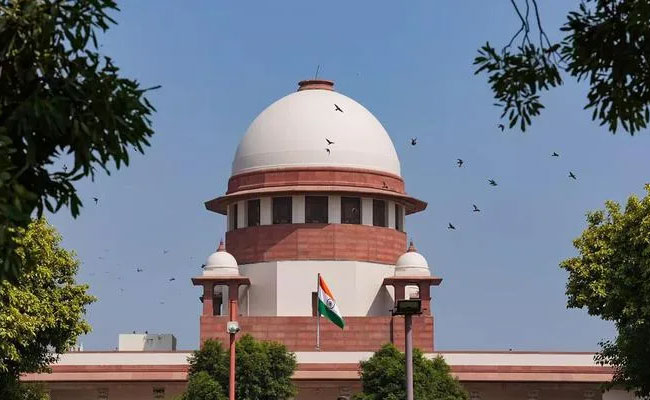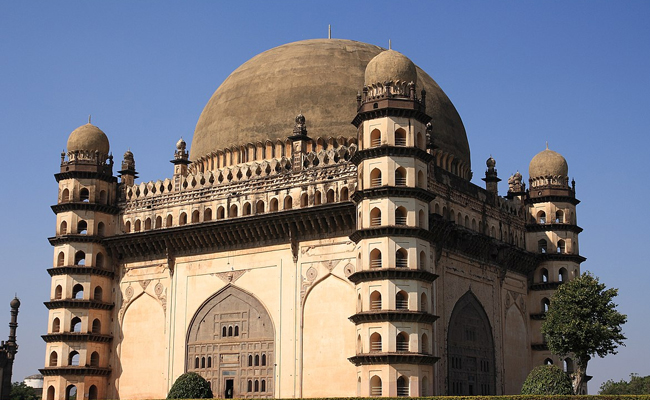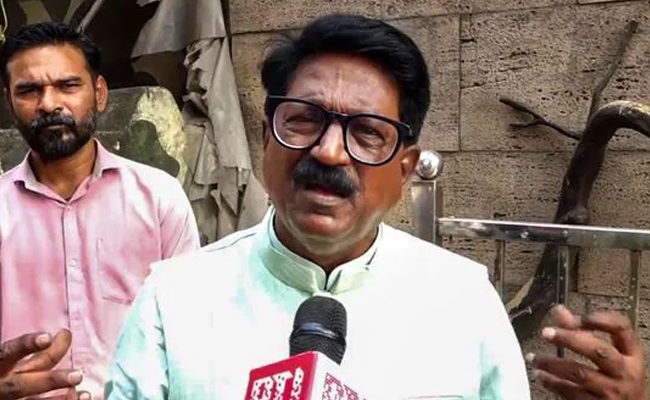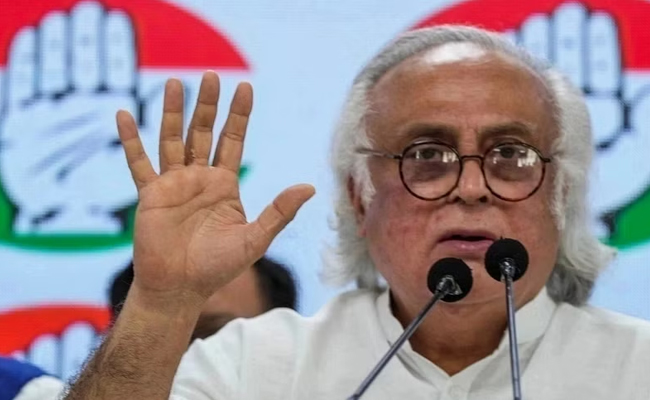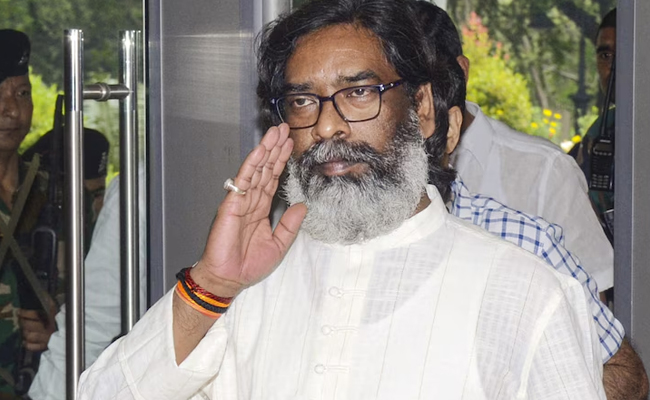New Delhi (PTI): The Supreme Court on Monday asked Attorney General R Venkataramani and Solicitor General Tushar Mehta to look into the issue of the suspension of Jammu and Kashmir education department lecturer who had argued before the top court in a matter related to the abrogation of Article 370.
A five-judge bench headed by Chief Justice D Y Chandrachud took note of the suspension of Zahoor Ahmad Bhat, who had argued before the top court on August 24 as petitioner in-person in the case.
As soon as the court resumed its hearing, senior advocates Kapil Sibal and Rajeev Dhavan pointed out that Bhat was suspended from his job by the Jammu and Kashmir administration after having argued before the top court.
"He took leave for two days. Argued before this court and went back and was suspended," Sibal said.
The bench, also comprising Justices Sanjay Kishan Kaul, Sanjiv Khanna, BR Gavai and Surya Kant, asked Venkataramani to talk to the J-K Lieutenant Governor and look into the issue.
"This should not happen. Someone arguing before this court gets suspended ," the bench said.
Venktaramani replied that he will look into the issue.
Mehta said after the news of Bhat's suspension was published in a newspaper, he checked with the administration and he was informed that there were various reasons behind the lecturer's suspension including that he has been regularly filing petitions before different courts.
"We can place before the court all the materials related to his suspension," Mehta said.
Sibal countered, "Then, he would have been suspended earlier, why now. I have the suspension order of Bhat and it says that he has argued before this court and therefore the suspension. This is not fair. This is not how democracy should function."
The bench said if there are other reasons then it is another matter but if a person gets suspended in close proximity of arguing before this court, then it needs to be looked into.
Mehta said he agrees that the timing was not appropriate and he will look into it.
On August 24, Bhat had appeared in-person before the top court and argued against the Centre's August 5, 2019 decision to abrogate Article 370.
Bhat was removed from his place of posting in Srinagar and was attached to the office of the Director School Education, Jammu, while a senior official was appointed as an inquiry officer to conduct an in-depth inquiry into his conduct, according to an official order.
"Pending enquiry into his conduct, Mr Zahoor Ahmad Bhat, Senior Lecturer, Political Science, presently posted at Government Higher Secondary School Jawahar Nagar Srinagar, is hereby placed under suspension with immediate effect for violation of provisions of J&K CSR, Jammu and Kashmir Government Employees (Conduct) Rules 1971, J&K Leave Rules," School Education Department Principal Secretary Alok Kumar said in an order.
During the period of suspension, the delinquent officer shall remain attached in the office of Director School Education, Jammu.
"Further, it is hereby ordered that Ms Subah Mehta, Joint Director, School Education, Jammu is appointed as inquiry officer, who shall conduct an in-depth inquiry in the conduct of the delinquent officer," the order issued on Friday read.
Hailing from central Kashmir's Budgam district, Bhat, who holds a law degree, personally appeared before the Supreme Court which is currently hearing a bunch of petitions challenging the scrapping of Article 370 that granted special status to the erstwhile state.
The central government abrogated Article 370 and bifurcated Jammu and Kashmir into Union territories of J-K and Ladakh on August 5, 2019.
Let the Truth be known. If you read VB and like VB, please be a VB Supporter and Help us deliver the Truth to one and all.
Hubballi: The Karnataka Waqf Board has claimed ownership of 53 historical monuments across the state, including notable sites like Gol Gumbaz, Ibrahim Rauza, and Bara Kaman in Vijayapura. In 2005, the Waqf Board declared 43 of these sites in Vijayapura, once the capital of the Adil Shahi dynasty, as Waqf properties. However, these sites have since faced encroachments and unauthorised modifications.
According to records obtained through an RTI, the Waqf Board designated these 43 sites as Waqf properties using Record of Rights (ROR) documents, though the Archaeological Survey of India (ASI) is the recognised custodian of these protected sites. “While ASI is the holder of the land/monument, the encumbrance is the Waqf authority. This has been done without consulting ASI,” says the RTI response from the Union government.
This declaration was made by Mohammad Mohsin, who held dual roles as Vijayapura’s Deputy Commissioner and Waqf Board Chairman at the time.
“I don’t remember how many monuments were declared as Waqf properties. But whatever I have done is according to the government gazette notification issued by the Revenue Department and authentic documentary evidence produced by the parties,” said Mohsin.
Many of these monuments, designated as nationally significant heritage sites since 1914, are officially under ASI’s care as per the Ancient Monuments and Archaeological Sites and Remains Act (1958). ASI asserts that "once an ASI property, it is always an ASI property," meaning their ownership is non-transferable. However, sources report that several of these sites have been defaced, unscientifically renovated, or altered with elements like air conditioners, fluorescent lighting, and even commercial and residential structures, impacting their historical integrity and tourism appeal.
“Monuments are the living examples of our history. Monuments can be renovated/conserved in the prescribed manner only by ASI. However, the 43 monuments in Vijayapura are being defaced and are being repaired with plaster and cement. Fans, air conditioners, fluorescent lights and toilets are being added to the monuments. Shopkeepers have taken over certain properties. This is adversely impacting the flow of tourists to these monuments,” said an officer who did not wish to be named.
Since 2007, the Ministry of Culture has repeatedly requested the state authorities to clear encroachments on these sites. Despite a joint survey in 2012, ASI officials report that neither the Waqf Board nor the Vijayapura Deputy Commissioner’s office has provided adequate documentation to substantiate Waqf’s ownership claim. ASI officials, under directives to avoid commenting on the issue publicly, maintain that their ownership under the AMASR Act remains unchangeable.

